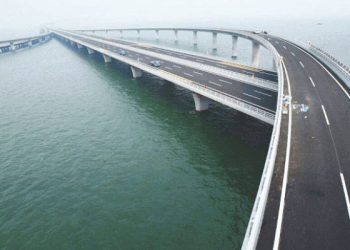“THEY are busy with political campaigns, while Boko Haram is killing us like chickens.” “…What our present leaders are doing is a child’s play when compared with the sins for which God punished the people of Sodom and Gomorrah.”
These emotion-laden statements from traumatized refugees verily express the state of denial which the present government has placed itself amidst the ongoing carnage, territorial occupation and the deliberate disintegration that is playing out in the terrorized north eastern part of the country. This abhorrent state of denial was manifested variously by the recent council of state meeting, which touched on other issues but did not dwell on the Boko Haram religious criminality; and by members of the National Assembly who came straight from a recess to begin a fierce battle over party defection and ignored the havoc wreaked on helpless Nigerians by the terrorists. Even the Chief of Defence Staff, Air Vice Marshall Alex Badeh was less than forthcoming in his assessment when the insurgents took over Mubi, Adamawa’s commercial nerve-centre, over-ran the 234 Army Battalion and destroyed his Vimtim hometown. Curiously, amidst this searing ‘war’ situation, the Nigerian Army has been retiring Army Generals.
The ordinary Nigerian may not be a military strategist, or a combatant; but it is logical to ask whether the situation at hand warrants retirement of the Generals. Is there something in the army that Nigerians need to know and no one is saying? Is the army so over-bloated by idle Generals that the force requires some cleansing? Might that be the problem?
According to an estimate quoted last month in a research paper published by the Chatham House international affairs think-tank, the Boko Haram’s ranks are said to be about 6,000 to 8,000 men. Nigeria, on the other hand, is reportedly endowed with about 80,000 armed service personnel and about 82,000 paramilitaries. With this capacity of armed forces, reputedly the biggest in West Africa; coupled with the internationally acknowledged professionalism of the Nigerian military, it is expected that in principle, crushing the insurgency should not be an impossible mission. Considering the disparity between the Nigerian armed forces and the ranks of Boko Haram therefore, it is unimaginable how Boko Haram could be allowed to make such break-through. What then is happening to the Nigerian Armed Forces?
Is this the indolence that informs the thinking that the unwillingness of the Boko Haram to allow a truce might be connected with 2015; on the premise that Abuja would use it to its advantage as an election gambit?
Apart from the belated reaction of the northern governors urging the Federal Government to declare total war on the Boko Haram, there is scarcely any exercise of urgency, or modicum of seriousness, to match the bravado of the insurgents. When compared with the mercurial tempo with which party campaigns and endorsement road-shows were inaugurated, both in the body language of the ruling elite and in the temperament of those who call themselves leaders, there is evidently no willingness to frontally address the present crisis in the land, beyond mere lip-service.
Is this attitude an affirmation of the kind of Nigeria the government desires? Are the ruling elite just expressing in the most obscene manner their incapacitation? Or is it a perfect acting of a long-written script? Surely, no government with the manpower and resources available to Nigeria would respond so feebly to the tenacious effrontery of a rebel group wantonly violating its territorial integrity.
If in this situation of emergency, the guardians and auxiliaries of the polity are frolicking like happy campers in a merry-go-round, then it is pertinent to ask: “Where are the adults?”
Irrespective of the state of mind of the government, a war between Nigeria and Boko Haram has been raging. Not only have people been massacred and villages sacked, territories are also being occupied and flags hoisted to establish the occupation of ‘conquered’ lands. No fewer than two dozen towns and villages in three states – Adamawa, Borno and Yobe – have been captured and a caliphate allegedly declared over them. This is the simplest understanding of war. So, the government should not be deluded that it is grappling with mere religious rascals; rather it is contending with an outlaw demanding sovereignty. More than before, the fight has now escalated from one of dissuasion of fanatics and bigots to one of recapturing occupied territories. This, by all means, demands whatever resolve Nigeria can muster to address it.
To extricate itself from this debacle of denial, the government must face the painful truth about the nation in crisis and be realistic to act sacrificially for the nation’s interest. The leaders must be humble enough to realize that all is not well with the polity; and that leadership has a lot to do with the problem. It must face the shameful situation that the instrumentalisation of religion for political gains and personal aggrandisement is a bane to the country’s collective well-being. Government should not live under the pretension that the Boko Haram crisis could be addressed by military intervention alone; it must open to the fact that other groups, among them religious organisations, traditional institutions, ethnic associations and governments of neighbouring countries are also involved in this crisis.
Government must also acknowledge that given its resources, it has not acted as sagaciously as a country of right thinking and prudent leaders should. It needs the guidance of fearless, selfless, realistic and nationalistic citizens who can speak truth to power. In all this, it needs to bear the interest of the country in mind; for no country would come to Nigeria’s aid solely for Nigeria’s interest.










































